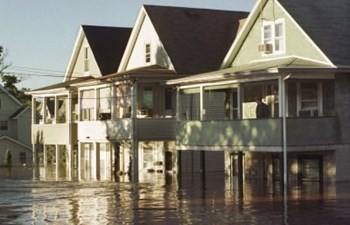
There is a joke that is regularly circulated via e-mail among insurance industry professionals. It goes a little like this: A North Carolina man, having purchased a box of 24 rare and very expensive cigars, insured them against fire. (Yes, fire.) Within a month, having smoked his entire stockpile of fabulous cigars, and having yet to make a single premium payment on the policy, the man filed a claim against the insurance company.
In his claim, the man stated that he had lost the cigars in "a series of small fires." The insurance company refused to pay, citing the obvious reason: clearly, the man had consumed the cigars in the normal fashion.
Punch line number one? The man sued, and won. In delivering his ruling, the judge in the case stated that the man held a policy from the company, which warranted that the cigars were insurable. The company, in the policy, had also guaranteed that it would insure the cigars against fire - without defining what it considered to be "acceptable" versus "unacceptable" fire. Thus, the company was obligated to compensate the insured for his loss. Rather than endure a lengthy and costly appeal process, the insurance company accepted the judge's ruling and paid the man $15,000 for the rare cigars he had lost in "the fires."
But here's punch line number two: Shortly after the man cashed his check, the insurance company had him arrested on 24 counts of arson. With his own insurance claim and testimony from the previous case used as evidence against him, the man was convicted of intentionally burning the rare cigars and sentenced to 24 consecutive one-year prison terms.
It's a good joke, but insurance companies regularly deal with odd, interesting and even funny insurance cases like these. All, however, come with their own morals-of-the-story. Here are just a few that might not seem as odd as North Carolina cigar man, but really stuck out in the minds of the insurance experts we interviewed.
When Lightning Strikes
Lightning can be dangerous - not only for how deadly it can be to people, but also because of the extensive damage it can do to their property. According to the National Weather Service, lightning can travel along the outer shell of a building, or may follow metal gutters and downspouts to the ground. Inside a structure, lightning can follow conductors such as the electrical wiring, plumbing and telephone lines to the ground.
One summer storm season about five years ago, a 300-unit homeowners' association in Galloway learned firsthand about the dangers of lightning. With one fierce strike, a particularly well-aimed bolt burned out unit owners' TV sets and $7,000 worth of lawn sprinkler equipment.
"In most cases, underground property isn't covered by insurance, and in a normal situation this wouldn't have been covered either," says Thomas Heist, president of Thomas H. Heist Insurance Co. in Ocean City. "But one carrier, Community Association Underwriters of America, does insure property underground and the association had this insurance."
After attempting and failing twice to fix the sprinkler system, the association met with the insurer and reviewed the damage. "In this case, they clearly saw that the transformer no longer worked," says Heist. "The adjuster smelled something that proved that the sprinkler's operating system no longer worked - it was fried out from the storm."
Within two weeks the association received a check for repairs, minus the deductible, and their premiums were not raised.
Can I Have a Do-Over?
Living in an affluent Morris County town home doesn't preclude you from being involved in interesting insurance cases. This past holiday season, one man wished that he had the gift of a do-over when he ran his car through the back wall of his garage.
"It went through the back wall, into the backyard and hit the hot water and gas tank along the way," says Debbie Pasquariello, a producer with Boyarin Hourigan Blundell (BHB) Insurance Agency in Toms River.
Pasquariello explains that she referred the unit owner to his individual automotive insurance policy, since the damage had been done by his car. "We called his insurance policy and found ourselves talking to the homeowners claim rep because the unit owner put it through to his homeowner's insurance policy, but that wasn't right."
The homeowner's insurance carrier claimed that the association's insurance should cover the unit, since that insurance is considered primary, but the board didn't want the loss on their loss history. Nobody wanted to pay.
"I had to go through the association documents and show the auto carrier that the unit owner doesn't own the back wall," says Pasquariello. "The back wall is common elements - but we convinced his auto insurance company that the unit is owner-occupied, but he doesn't own the structure."
As a result, the auto insurance company agreed to pay the structural damage owned by the association. His homeowners' policy kicked in a little, and the master policy paid for the furnace and hot water heater, so Pasquariello says, "In the end, all three companies paid a part of it."
Within 90 days, the entire claim was processed and paid. Premiums remained the same, as did the coverage. "It was a fluke accident," says Pasquariello. "This type of claim shows the different types of coverages that can cover everything."
Often, when a homeowner or association has a claim, the number one question is "Should we file a claim? It might make our premiums go up." Ronald L. Perl, a partner in charge of community association practice at Hill Wallack LLP, and an adjunct professor at Seton Hall Law School in Princeton, says not to worry about premiums.
"Premiums are based on number of claims," he says. "If you have one claim, it probably won't have a dramatic effect. But if you accumulate a lot of claims, it will have a dramatic effect on premiums. Some think damage or injury can be fixed without going through the insurer, so they won't report it. Unfortunately, you never truly know how large the ultimate claim is until there is a complete investigation. You are also obligated to give the insurance company the claim in a reasonable time, or you can lose insurance coverage entirely."
Water, Water, Everywhere!
Well, that's the last thing any homeowner wants to hear, but according to Heist, the reality is that 70 percent of insurance claims involve water somehow.
"Whether it's washing machine hoses or pipes, leaks can cause thousands of dollars in damage," he says.
Heist is recognizing a water claims trend with something that residents might not have given much thought about earlier.
"I'm seeing a trend in claims from those automatic ice machines in the refrigerator," says Heist. "If there is a leak and it runs for days, it can cause lots of damage. It might get to the point where associations might not allow these in the units."
Just a few months ago, one small Ocean City association suffered such damage when an ice line ruptured, running for days and pouring water on the downstairs owners. Since the upstairs unit was a vacation home, the owners weren't around.
"The water caused $50,000 in damage to the unit below," explains Heist. "The insurance policy of the owner of the unit below has to pay the damage because you can't always find fault." However, Heist explains that the unit owner who suffered the damage can try to recoup his losses from the upstairs owners.
The moral of that story: know when it's time to replace your icemaker hose line, and check it often.
Perl also remembers a recent water case that involved a high-rise in Bergen County. A main waterline ruptured, causing $100,000 in damages, affecting the elevator systems, heating and air conditioning units and more.
"There was a dispute, because the insurance company said they did an investigation and found it to be a construction defect - and they do not insure losses arising from construction defects," says Perl.
As it turns out, the building was constructed 30 years ago. Perl says he was amazed that the insurance company could claim a construction defect from 30 years ago. "We've asked them to prove it, because they are refusing to reimburse." Perl explains that this case is still ongoing, but at renewal time the association has a right to reconsider signing with this insurance company.
Common, But Often Forgettable
In Middlesex County, one 400-unit townhouse/condo association takes pride in their appearance, especially their landscape. So they were extremely disappointed when the landscape contractor they hired to perform lawn maintenance did a shoddy job and had to be fired. The association didn't pay their last few invoices with the landscaper and the landscaper sued for $20,000.
"We always tell the association to make the claim against insurance no matter what," says Perl. "Sometimes contract claims have been covered by directors and officer's liability insurance."
Could this have been prevented? "We say that before any litigation is allowed to occur, the parties should sit down and try to negotiate," says Perl. "It's expensive to litigate, so they should try to meet halfway and amicably before litigation."
The suit was settled six months after litigation was started.
Don't Get Burned!
Finally, in August 2005, one resident of a four-unit Northern New Jersey complex pulled his car into the garage under his unit, just as he did every day. Unfortunately, this day wasn't so typical - the unit owner's engine caught on fire, the fire caught the garage ceiling and proceeded to burn the entire complex to the ground. Later, according to Heist, it was uncovered that the association did not have enough fire insurance to cover their losses.
"The unit owners had no place to live, but were special assessed to pay for the damages, and they had to continue paying their fees," says Heist.
The situation with that unfortunate HOA is still ongoing, and the association has not rebuilt. The moral here - don't get burned - and, have the right kind and amount of insurance for your association.
Lisa Iannucci is a freelance writer, published author, and mother of three living in Poughkeepsie, New York.






Leave a Comment